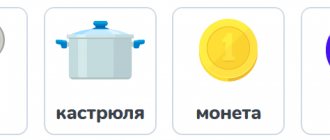Each child is unique and has his own personality. Some people like to play with other children, others are more active, and some children prefer quiet games alone. However, every child needs a little help to overcome the communication barrier, give them the opportunity to self-actualize and increase self-esteem. In such cases, psychological games and exercises come to the aid of teachers.
Below you will find a description of the most interesting and popular trainings that will be useful for your child or teenager.
Why do we need training for children?
Trainings are the best way to achieve results in practical psychology through psychotherapeutic techniques.
The importance of trainings cannot be overestimated, because they help the child develop important skills such as communication and interaction with other children and self-regulation.
Among other things, psychological exercises have a beneficial effect on professional self-orientation. To properly correct a child’s emotional state, psychologists conduct various types of training. Typically, these trainings help develop certain qualities, skills or abilities, and form certain attitudes.
You should not be afraid of these trainings, because these are rather exciting games and activities during which schoolchildren and preschoolers receive practical training. These classes are held individually, or you can gather a whole group of children. The form varies depending on who the participants are, how they behave and what the purpose of the session is. Group classes help children learn to interact and each participant reveals their individuality.
These trainings will be especially useful for those guys who are really interested in studying their behavioral traits and revealing their worldview.
By the way, these trainings can be conducted by ordinary teachers and teachers. Or a parent can use the tools and conduct some entertaining and useful psychological exercises at home.
Psychological games: basic rules
Psychologist's sessions with teenagers and children are most effective if they are presented to a young audience in the format of a game in which all the assembled participants are involved. The game allows you to comprehend certain aspects of human psychology and adapt in the most effective way within society. The organizer of such events must have practical experience and adhere to the following basic rules for working with children of primary school age and adolescence:
- Explain in accessible language the rules and goals of each psychological training. Examples of real life situations with a similar psychological mechanism of action will be a good help.
- It is important to constantly monitor the emotional state of all group members. To do this, it is recommended to maintain the dynamics of the process at the proper level, avoiding procrastination and a boring atmosphere.
- Participants in the gameplay need motivation. The organizer must be able to not only interest the children, but also demonstrate to them the benefits of psychological training using examples of specific situations.
- It is important to explain to children that collective work is built on the principles of mutual respect, warmth and tolerance for the shortcomings of others.
After each psychological game, you need to arrange a collective discussion, in which all training participants should be involved. Such steps make it possible to build an optimal algorithm for activities that are interesting to the largest number of children and adolescents. The organizer should not position himself as a stern adult, capable of punishing for certain offenses. On the contrary, the most effective is the model of a kind and patient assistant, ready to help in any difficult or conflict situation.
Psychological games for children enable the child to overcome accumulated fears and complexes, and also have the following positive potential:
- allow the child to feel a sense of unity with a group of peers;
- increase self-esteem and strengthen self-esteem;
- help children learn respect for themselves and others;
- teach the child to effectively overcome difficulties and obstacles;
- teach children coordinated group work;
- develop empathy and the ability to empathize with others in the child.
It is very important for the leader of psychological trainings for preschool and teenage children to learn how to create a cozy and friendly atmosphere in which even an introverted child will feel comfortable. When a new group of children gathers, unfamiliar with each other, they may feel a certain constraint, the task of overcoming which lies with the organizer of psychological games.
Trainings for preschoolers
Preschoolers love to play such games, but their attention is rather scattered. The teacher should conduct at least 3 training games in one lesson. But every game should have a specific goal.
Exercise “The Dragon Who Bit Its Tail”
To play this game, it is better to turn on funny music. The children stand in a line one after another and place their hands on the shoulders of the child standing in front. The baby who stands in front (Drakosha's head) tries to catch the one who stands behind (Drakosha's tail). This “tail” should try to dodge the “head”.
This exercise will help preschoolers get rid of their fears and relieve nervous tension.
Game "I am your friend"
This game teaches children to empathize, help each other and develop a sense of empathy.
The point of the game is for the teacher to introduce a new friend to the children. It could be some kind of animal or even a toy. You can take a teddy bear and make up a short story. For example, “this little bear went for a walk in the forest and got lost. Now he doesn’t know how to get home and he’s very sad...” Next, give the teddy bear to the child so that he can tell him something nice, take pity on him and support him. Then pass the toy to the next child and so on in a circle. Motivate the children to tell the bear that no one will hurt him, that he is among friends and that soon he will go home to mom and dad.
“What are you, Blob?”
Children love creativity very much. This is both the development of imagination and a surge of energy. And through creative tasks you can help your child get rid of aggression and fears.
Place a sheet of white paper, gouache paints and brushes in front of the child. Give your child the opportunity to choose the color he likes best. Many psychologists draw conclusions about the psychological state of the child. If the baby chooses dark shades, it means he is depressed and something is gnawing at him. Let your child dip the brush into the gouache and then spray it onto a clean sheet of paper. If your child wants to color this blot a little, let him. Then fold the piece of paper so that the design is printed on the other side. Now invite your child to fantasize and ask what or who he sees.
Exercise “Control your emotions”
It is extremely important to teach your child to cope with negative emotions. There are certain psychological trainings that do an excellent job of this task.
Remind your child often that when he is angry or wants to hit someone, he should stop, inhale and exhale, close his eyes, count to 10, smile and open his eyes. Calmness will drive away anger and any irritation.
Tell your children that they will become truly adults when they learn to manage their emotions.
Trainings for primary school students
Psychological training for primary school children is extremely important. Such games and exercises help the child cope with internal problems. Over time, the child gets used to it and can control them independently.
Children 7-9 years old are recommended to do:
- acting technique
- relax
- diagnostic techniques
- art therapy
- role-playing games
Exercises of this kind simulate various situations that a child faces and help him consider different ways of behavior.
Exercise "Barometer"
Before starting the exercise, the teacher should introduce the children to a real barometer. Tell the kids why they use it and offer to measure their mood. If the baby clenches his palms tightly, it means he is in a bad mood today; and if the palms are wide open, then the child feels great.
Game "What do you like to do"
Children love this kind of games very much. They are very useful and quite interesting. Children learn something new about each other. The essence of the game is that the child shows other children what he likes to do in his free time. In this case, you cannot use words, but everything must be shown with gestures. As soon as one of the children guesses what the first child likes to do, the next one takes his place and tells with gestures about his hobbies.
Game "I like.."
All children sit in a circle. The one of the children who starts the game turns to the neighbor on the left and says the phrase: “I like...”, and then the child should give some kind of compliment. For example, you can say how beautiful your eyes, hair, hands are, praise your sense of humor, or say how friendly your friend is.
Game "Two Rivers"
Let the children line up in one column and now they are a big river. This river spills into two small rivers. The teacher should place two children at the beginning of the river on opposite sides. The rest of the kids should take turns, either behind the first kid or the next one. In this way, children learn to create subgroups.
Game “Make Princess Nesmeyana Laugh”
All the guys sit near the wall, and a chair is placed in front of them. One of the children sits on a chair. Now he is Princess Nesmeyana. The other children must make the Princess laugh by talking about her virtues. Each child takes turns saying something unusual, kind and funny to the Princess. As soon as the Princess smiles, the next child takes her place on the chair.
Exercise “Support me”
All the guys stand in a circle. One of the guys stands in the center of the circle. The teacher should explain to the children that the one who stands in the center keeps his back straight and his legs together. The guys around him stretch out their arms in front of them and prepare to catch the one standing in the center. It is important that there is a distance of 20-30 cm from the hands to the baby in the center. As soon as the baby in the center begins to fall in any direction, the guys must catch him and put him in his place. The point of the exercise is to teach the child to trust others, and the children in the circle must live up to the expectation and catch the falling one.
Game "Warmth of Good"
All the guys stand in a circle and take each other’s hands. The point is that each participant conveys warmth to another child standing next to him through a light handshake. When the game begins, the first child lightly shakes hands with the neighbor on the left, who shakes hands with the neighbor on the left, and so on down the chain. When the last participant shakes hands with the one who started the game, you can close everyone's eyes and start the game again.
Training exercises for preschool children
To prevent children's attention from wandering, games for training preschoolers should be short-lived. It is better to play 3-4 different games in one lesson. Each of them should be aimed at achieving a specific goal.
Training game “Dragon biting its tail”
This game helps children get rid of existing fears, relieve tension and neurotic states.
It is advisable to turn on cheerful music during the game. Children, lined up in a chain behind each other and holding the shoulders of the comrade in front, depict the body of a dragon. The child standing first, who represents the head of the monster, tries to catch the “tail” - the last child in the chain, whose task is to deftly dodge.
Training game “I am your friend”
A very good exercise for training preschool children - it helps develop a sense of empathy - the ability to empathize, make friends, help, and also teaches group work.
During the game, children get acquainted with a certain hero (for example, it could be a toy parrot) who is in trouble and in need of help. Having invited the kids to stand in a circle, the teacher can tell how a parrot flew into their group: “He probably accidentally got out of the cage, doesn’t know how to get back to his owners, he’s scared and lonely.” Children are offered a toy parrot, with whom they must make friends, stroke it, talk affectionately, let it understand: no one will hurt him, they will help him, he is among friends.
Training “What are you, Blob?”
Very often, children's trainings contain elements of artistic creativity. For example, by making blots on paper, you can not only develop children’s imagination, but also relieve aggression and fears.
For this exercise you only need paper and gouache paints. The kid chooses the paint he wants. (By the way, psychologists can often draw conclusions about the child’s psycho-emotional state based on this choice: the choice of dark colors indicates his depression).
And then, having collected it on a brush, you need to spray it on the prepared paper. If you fold a sheet of paper in half so that a spot of ink is imprinted on the other half of the paper, you get a kind of image. You can invite children to fantasize: what or who do they see in the resulting “composition”, is it scary or funny, evil or good?
Psychological exercise for self-control
Psychological training for children is very important, teaching them to restrain negative emotions. Preschoolers need to be reminded more often that when they are angry, and even more so want to hit someone, they need to pause, take a deep breath and exhale several times, and then stand up straight, close their eyes, count to ten and, smiling, open their eyes. Anger and irritation are afraid of calm and a smile.
It is important to emphasize that when children learn to manage their emotions, they can be considered truly adults.
Games and training for teenagers
Psychological games and trainings for teenagers have completely different goals. Weekly exercises for children. If games help kids grow up and develop in society, then these exercises help teenagers adapt to the changes that happen in life every day.
In addition, most teenagers are completely unprepared for this critical age. This is the very period when they stop believing in themselves and their abilities, doubt everything and provoke conflicts.
Fortunately, many centers conduct various exercises and games so that a teenager feels supported at home, at school, and among like-minded people. Today they talk about different types of exercises, but the most effective and popular are those trainings that help a teenager establish communication with others and trainings for personal growth.
Many parents neglect communication training and in vain. It is at this age that teenagers learn to communicate and establish contact with peers. But how and with whom your child communicates depends on his further growth and development. Therefore, it is extremely important to teach a teenager how to build relationships correctly. It also helps to teach one to assert oneself, attract the attention of the opposite sex without violating the norms of social behavior, and follow all moral and ethical values.
What are the main goals of psychological training for adolescents?
- develop self-confidence;
- not be afraid of public speaking;
- develop a sense of purpose;
- develop communication skills;
- improve school performance;
- identify leadership qualities
It is extremely important to choose the right tests and games so that teenagers feel cared for and at the same time, so that this is as effective as possible. Such tests can be carried out by an ordinary school teacher.
Psychological games for teenagers and primary school children
The fact that the game allows, with a high degree of efficiency, to form in a child a number of positive changes in mental properties, as well as the ability to communicate and empathy for others, is a fact proven in theory and confirmed by practical experience. The basic functions of gaming activity are:
- uplifting, entertainment;
- identifying deviations in the development and behavior of the child;
- discovering talents and acquiring useful skills;
- positive transformation of personality at the structural level;
- socialization of the child, simplifying his future life in society.
There are a huge number of different psychological games: organizational and educational, aimed at developing mental activity, innovative, positional and many others. Living games allow you to comprehend fundamental personal values, increase self-esteem and the ability to respect the point of view of your interlocutor. Project games develop personal criticality, as well as the ability to set certain goals and achieve them through competent planning and systematization.
Games for teenagers
Exercise “Map of my life”
This exercise lasts about half an hour. The children are given sheets of paper on which they need to draw their entire life path. Teenagers need to remember all the important and key points and display them in the picture. They need to draw everything that comes to their mind, starting from the moment of birth. Later, the guys must present their drawing to the whole group and tell what they consider necessary. It takes about 15 minutes to make a card.
Mini-game "Lucky Scale"
This exercise only lasts a few minutes. The presenter invites the children to evaluate their lives. 10 points means that the teenager’s life is happy and carefree, he doesn’t want to change anything and is happy with everything. 1 is given by those guys who are not at all happy with their lives and want to make a lot of changes.
The assessment must be announced to the whole group of children and justified. Other guys may ask questions on the topic and you must give a detailed answer to them.
The game can be taken in a slightly different direction. The guys can announce their marks, and then take turns telling about happy and sad stories from their lives.
Game "Mom and Daughter"
This game is quite unique, because the guys will have to touch each other. Here it is extremely important that the teacher explains to the children the role of skin-to-skin contact and touching.
We divide the children into pairs and in each pair we determine the role of the child and the role of the parent. Then, for 2-3 minutes, each “parent” should show a variety of feelings towards their child through touch. You can also use words. Afterwards the guys change roles and start playing again. When the game is over, the guys can share their feelings and decide which role they liked to play.
Game "We are alike"
This exercise takes about half an hour. And this game has 2 options.
- The guys begin to walk around the room and every time they encounter someone, they must note how they are similar to each other.
- Or you can divide all participants into pairs. For the first 5 minutes in each pair, the guys discuss how they are similar, and then talk about their differences.
Finish the game with a summary. The teacher should help the children come to the conclusion that all people are alike, but at the same time we are all different.
Game "Joys of Life"
This game should encourage children to remember all the good things that happened to them in life. The exercise seems to focus the teenager’s attention only on the positive aspects. The children also learn to work in a team and cooperate.
The teacher divides the children into groups of 3 people. Each group of teenagers receives a picture depicting some area of life. The guys come up with some kind of story based on this picture. And then they move on to the next image and continue the story. When all the pictures are described, the game can be completed. About 5 minutes are given to describe each image.
The guys can discuss the resulting stories. In total, the game will take about an hour and a half.
Exercise "What if..."
This exercise should encourage children to discuss their own emotions and feelings. Children also learn to build cause-and-effect relationships. In addition, schoolchildren learn how to behave correctly in a given situation.
- Place the cards with the beginning of the stories on the table. Players take out cards and come up with a continuation of the story. The guys say each story out loud and then discuss it.
- With the same cards, the guys dramatize what in the first case they would have told in words. That is, a group of guys takes out a card and shows with their actions the continuation of the story.
- Another interesting option is to invite each participant to draw a card with the beginning of a sentence, and they must give a short answer and complete the sentence. Examples of sentences could be the following:
- if I fell in love/fell in love, then...
- if I'm sad then...
- if I want something, then...
- If I'm scared, then...
- if I see an alien, then...
- if I quarrel with a friend/friend, then...
- If I'm interested in something, then...
- If I have nothing to do, then...
- If I'm late for something, then...
- if I'm cold, then...
- If I don't want to sleep at night, then...
- if my boyfriend/girlfriend leaves me, then...
- if my loved one dies...
There can be an endless number of such questions. There is no need to be afraid to write negative conditions, because anything can happen in life, and every person should be prepared for troubles. Psychologists say that such trainings help teenagers avoid rash actions.
Game "Kingdom"
At the beginning of the game, the participants choose a king for themselves, and then he appoints a queen for himself. This pair chooses 1 assistant, and each assistant chooses another assistant. So the participants choose their roles until each of the guys is busy.
Next, the king and queen give orders to change something in their kingdom so that life here becomes better. Their order is passed from assistant to assistant in the order of the created hierarchy. Each of the assistants takes on some obligations to carry out the king’s orders. Throughout the game, the teenagers discuss how their lives will change when the order is carried out.
Then we change roles and repeat the game. Every teenager should experience each role and share their impressions.
What does this game give us? A teenager tries on different social roles and understands what responsibility he bears for a particular action or inaction. This game also helps identify leaders. Continue the game for no more than an hour so that the participants do not get bored.
Game "Determination"
This game lasts about 20-30 minutes. One of the teenagers leaves the class, and the other guys make a wish for one of the remaining ones. The teenager, who had previously left the class, comes back and asks 5 questions to figure out the mystery. The guys only say adjectives that describe the mystery. In the game, each participant must leave the classroom to guess who their comrades guessed.
Communication for teenagers
Teenagers also love to play, and most often in team games. Sympathy helps to understand the process of the birth of sympathy and good relationships . One of the participants should make a presentation to the group within a couple of minutes. This could be a story about yourself, an anecdote, a demonstration of magic tricks, dancing, singing or other skill and talent. After the performance, the group anonymously evaluates it on a 5-point scale. On a piece of paper you should briefly write what you liked about the performance and what you didn’t.
After analyzing these answers, participants understand what their likes and dislikes are associated with, and how to structure their behavior in society.
This training improves self-presentation skills, trains intelligence and improves the ability to improvise. The theater studio you choose for children should first of all please your child, and not meet your high criteria for the content and amount of theoretical material taught in it. Sign up for a trial lesson
Rules for psychological training
Each lesson is unique and interesting in its own way. For children, such sessions and games are educational and useful, because they discover new facts about themselves.
However, the facilitator should stipulate some rules, and the participants must follow and respect them. It would be good if you included rules such as:
- confidentiality
- personal opinion
- listening skills
Of course, the teacher himself can decide what rules to discuss with the group.
As you can see, there are psychological games and exercises for any age; they last 5 minutes and more than an hour. It is very important to explain to the child that this is just an exercise that will help him find some hidden answers, look at his fears, overcome uncertainty and gain confidence.
Psychological games for preschool children
Game-based training for preschool children should be short in duration, since children’s attention dissipates very quickly. It is preferable to play three or more games in one lesson with breaks of 5-15 minutes between them.
Baby dragon biting its own tail
The purpose of this game is to get rid of obsessive neuroses and deep-rooted fears. It is necessary to select musical accompaniment in advance, and the playlist should consist mainly of cheerful major songs and melodies. The game is played as follows: children line up one after another in the form of a living chain. Each of the guys should hold on to the shoulders of his friend in front. The task of the first baby, personifying the head of the dragon, is to catch the child who closes the chain as quickly as possible.
Exercises to improve self-control
Psychological training is important for children to help them deal with negative emotions. Preschool children should be reminded as often as possible about the destructive nature of anger, and if they are overcome by anger, they need to pause, then take a deep breath and exhale. Then, standing up straight, you need to count to 10 in your head and smile from ear to ear. Anger and irritability cannot tolerate calm and goodwill. At the same time, it is necessary to remind the child that only by learning to direct his own emotions in a constructive direction will he be able to become an adult and independent person.
Psychological games for children 10–12 years old
Chained by one chain
In order to perform the exercise, you need props in the form of a thin long rope and an ordinary key, which is attached to one of the ends of the rope. Participants sit in a circle and take turns passing an improvised chain so that it is threaded from above through the collar and comes out below waist level. When all members of the group are connected with each other, the leader invites them to perform a small physical activity in the form of squats, bends and other simple exercises.
Interesting information! After completing the exercise, you should invite the children to make the key a symbol of friendship and mutual assistance. The training has a metaphorical meaning and allows children to understand the importance of support from others.
Funny pantomimes
When listing psychological role-playing games for children aged 10–12 years, one cannot ignore “Funny Pantomimes”. The organizer prepares props in advance in the form of various items such as a children's synthesizer, drumsticks, guitar, wooden horse, walking boots and others. Each participant is randomly given the number of an object with which he is required to perform a pantomime with or without musical accompaniment.
Important information ! The exercise helps develop imagination and acting talents in children.
Truth or lie
The group settles down in a comfortable environment, after which the organizer announces the conditions of the game: he reads various entertaining facts to the children, then they decide whether what is said is true or pure fiction. The child who answers the question correctly receives 1 point. For an incorrect answer, 1 point is also deducted; the one who first raised his hand offers his version. The child with the most points at the end of the game wins.
This is interesting! This psychological game is designed to develop analytical thinking in children aged 6 to 12 years.
Psychological classes for teenagers
Individual sessions by a psychologist with teenagers make it possible to make adjustments to the behavior pattern of both difficult and withdrawn children who have problems communicating with peers. The task of a savvy and knowledgeable specialist is to competently select an individual approach to the child and involve him in the game process, which will form a positive behavioral pattern, as well as relieve obsessive fears, anxiety and complexes.
A noteworthy psychologist and practicing hypnologist is Nikita Valerievich Baturin. The hypnotist has an impressive number of session consultations, as a result of which the lives of their participants radically changed: problems that had accumulated over the years were resolved, self-esteem increased, relationships with others and achievements in the field of career and private business improved. For example, in this video Nikita Baturin talks about how to get rid of self-doubt and body pressure, which is very important for most teenagers.
Psychological games for primary school children
Psychological games for primary schoolchildren should be aimed at working through internal problems and teaching them steps to overcome them independently. Psychological training for children aged 6 to 9 years should include the following elements:
- Role-playing games. To fully immerse yourself in the plot, you need appropriate props. For example, to role-play as builders, children will need plastic shovels, scoops, buckets, tape measures and other equipment purchased at a toy store.
- Exercises for relaxation and achieving a peaceful psychological state.
- A number of acting techniques.
- Art therapy. This type of therapy is best suited for hyperactive children and children prone to depressive disorders and experiencing psychological discomfort within the children's group.
Art therapy is a complex of different techniques. Isotherapy is intended for children who experience certain difficulties with self-expression and who are trying to convey their own experiences, feelings and thoughts to the people around them. Choreographic practices are suitable for children of both primary and secondary school age who are prone to hyperactivity and aggressive behavior. Music therapy is the most universal technique and covers almost all age groups. Psychological games for children aged 6–9 years are based on modeling various situations and playing out possible behavior options in them.
What do you like to do?
This game is suitable for getting to know a new group, where most of its participants actually know nothing about each other. It is necessary to call one person at a time from among the young spectators, who will be given the following task: without using words, but only movements, facial expressions and gestures, tell the assembled children about your own hobby. For example, a child who comes out freely demonstrates his hobby to those around him, after which they are obliged to guess it. The kid who manages to do this first goes on an impromptu stage and continues the game.
Make Princess Nesmeyana laugh
A chair is placed in the center of the room, on which one participant in this unusual competition is seated. The one who emerges is awarded the title “Princess Nesmeyana”, which he is obliged to justify 100% and retain for as long as possible. Those around them begin to provoke the imperturbable participant in every possible way, and as soon as a smile appears on his face, the next participant takes over the post of “Nesmeyana”. The winner is the child who can last the longest without laughing.
Tell me what you like
Children form a circle, sitting comfortably on pre-prepared chairs or stools. By voting or drawing lots, it is determined who starts the game first. The starter turns to the child on his left side and speaks publicly about the traits that he likes most in his neighbor. A compliment can concern a beautiful eye color, an elegant profile, or any other feature that evokes sympathy. The only condition is that you can’t bend your heart and emphasize those features of appearance or character that you really don’t like.
Ball racing
The exercise is suitable for both hyperactive and calm young children. The organizers form teams consisting of pairs of guys. Each participant must, holding a balloon together with a partner, run to the finish line, then touch the control point and return in the same way, passing the balloon to the next pair. The team that completes the relay first wins. It is prohibited to touch the ball during racing.
Important information! The psychological game for preschoolers “Race with Balls” allows you to establish mutual understanding in pairs and, in a playful way, learn to work well within a single team.










